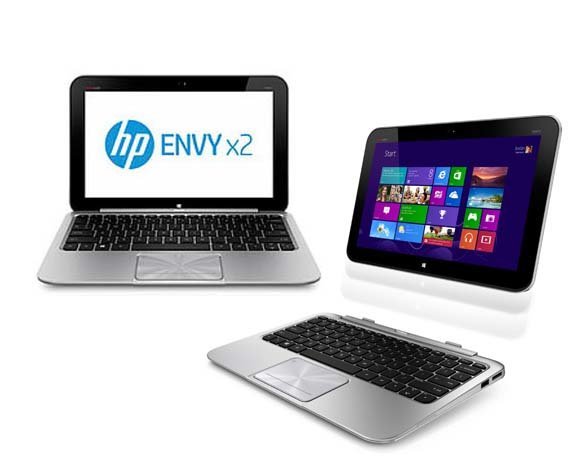No really, it's been murdered. No more tablets.
At this point, you might be wondering about my sanity. After all, Apple has just sold 14 million iPads in the last quarter of 2012 alone. But bear with me.
I recently purchased a new Windows laptop. It's an HP Envy x2 that runs Windows 8. That's the full edition of Windows 8, so I can run all my regular PC applications. This laptop has a touchscreen, and like several new laptops available from major manufacturers, it converts to a tablet.
Convertible laptop/tablets are the latest thing. There are numerous types now available, and you can read about some of them here.
This, my friends, is a game changer for the tablet market.
Before I go further, a little about Windows 8. I've been making friends with Microsoft's new operating system for the past month. It's not perfect, but it's certain that there has been some serious thought put into the use of touch screen computers. Microsoft has invested a lot into this, betting that all computers will be touch screen in the near future. They are probably correct.
If you don't have a touchscreen computer, Windows 8 is probably not for you. I tried, at first, using it with just the mouse. It was an exercise in serious frustration. It's not that it doesn't work, it just works in different ways that those of us who are familiar with Windows are used to.
But once you use Windows 8 on a touchscreen, you can see where they are going. It's easy, intuitive, and highly efficient to navigate between and around your Windows applications. Importantly, the introduction of Windows 8 has allowed for convertible touchscreen laptops. On my HP, I can remove the screen with one easy button and POOF, it's a tablet.
Only, it's not a tablet.
Sure, it's a touch screen device with Wi-Fi connectivity, cameras on both sides and apps that you can download. But it's also a fully capable PC computing machine that can run full versions of your regular desktop or laptop software. Things like MS Office programs. Or your favourite Adobe Creative Suite applications.
When Apple introduced the iPad, and at the same time popularizing the tablet, they used the existing operating system from their successful iPhone. That made sense at the time, given the success of Apple's App Store, and the ability to take advantage of the many hundreds of thousands of apps available. The iPad (and so the tablet) became a popular and effective media consumption device. Internet, games, movies, etc.
But iOS (and Android, Windows RT, and even the new Blackberry 10) is a mobile operating system, designed primarily for phones and subsequently extended onto tablets. This limited the tablet from running full productivity software. Further, typing on the touch screen was awkward, making even email easier to do on your laptop or desktop.
With Windows 8, this all changes. No longer do I have a laptop AND a tablet. I have both, in one machine, and even when the screen is separated and it's in tablet mode it's still a full productivity PC.
So the tablet has graduated from mobile OS to running full Microsoft Windows. The 'tablet', in it's old definition of entertainment and media-consumption product, has ceased to exist in the Windows environment. Hence the title of this post. Further, you can bet any money that the next iPad will run OSX.
My prediction, is that phones are not that far behind. Current smartphones have enough processing power and memory to run most desktop functions, it's just that they don't have the screen size and keyboard. But just imagine a phone that you plug into a docking station that itself has a full sized keyboard and large touchscreen attached. You have the same docking station at your office and at your house. In fact, you can drop your phone into a docking station at your friend's house and it will work there too. Your entire computing experience will fit in your pocket.
So what does this do to the iPhone vs Andriod battle? It throws a giant wrench into it, that's what it does. Apple has the existing iMac owner base who can graduate to OSX tablets and eventually phones. Andriod does not.
Some really smart people at Microsoft figured this out. And they realized that, even though they were late to the table with mobile offerings, they have a key strategic advantage - a huge number of Windows-based laptops and desktops that people use in their daily home and office life. So as mobile OS disappears and desktop OS takes over tablets and phones, people will look to consolidate so all their devices integrate with each other. This is how Microsoft, not that long ago considered to be incapable of breaking into the mobile market, may in fact come out the winner.

insightful
ReplyDelete